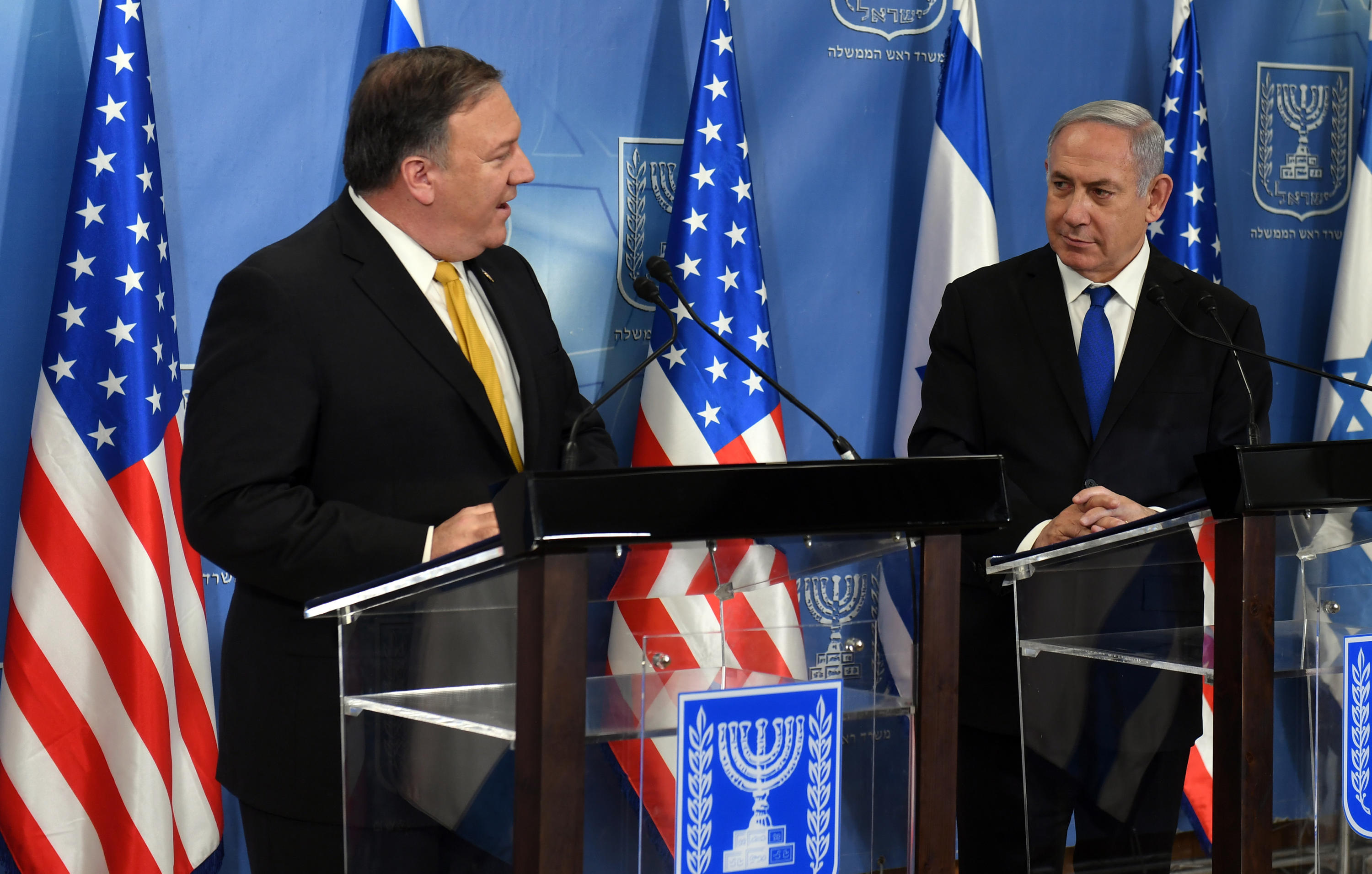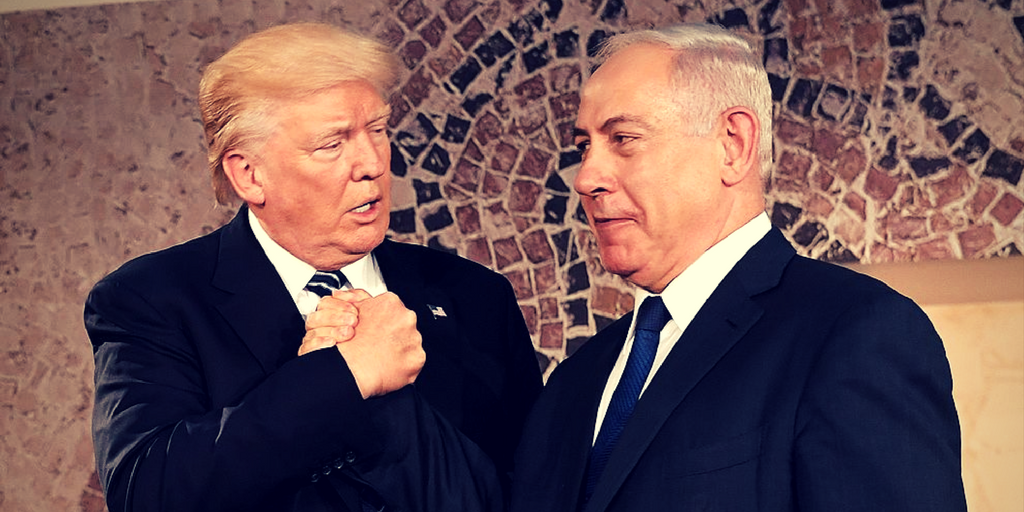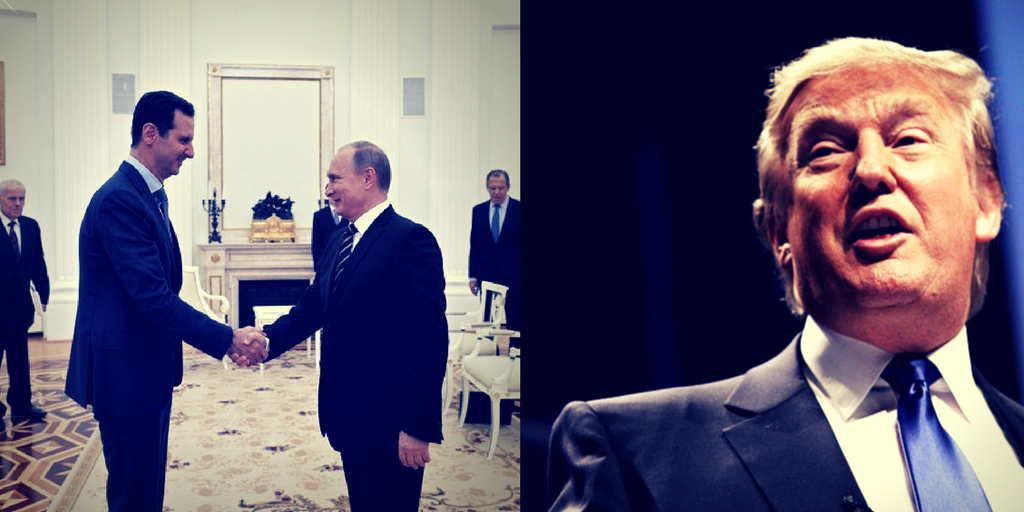The United States, United Kingdom, and France joined in a combined operation on April 14 that used “precision” strikes against Syria’s chemical weapons infrastructure. The following are key points about the raid.
1. Operationally, the strike showed the U.S. has the capacity to conduct airstrikes with allies, against significant targets, with minimal lead time.
It took less than a week for the U.S. and its allies to organize and position the air and naval platforms they used to carry out the missile assault. Indeed, according to the Wall Street Journal, Secretary of Defense James Mattis delayed the strikes twice, despite operational readiness.
This demonstration of operational speed and competence tells us two things. First, President Donald Trump is respected by U.S. allies. French President Emmanuel Macron and British Prime Minister Theresa May trusted Trump’s seriousness of purpose enough to join him in launching the missile strikes with little to no diplomatic jockeying.
In 2013, when then-president Barack Obama geared up to attack Syrian regime targets after Syrian President Bashar Assad killed 1,400 people in a sarin gas attack on East Ghouta, the British parliament refused to authorize British forces to participate in the planned strike.
The French, for their part, were left in a lurch by Obama. French bomber pilots were in their cockpits waiting to take off when they were informed that Obama had called off the airstrikes at the last minute.
In addition, Saturday’s strike showed that the U.S. has the capacity to degrade and destroy high value targets through indirect fire. U.S. pilots did not have to fly over their targets to bomb them. By the same token, if it chooses to do so, the U.S. can destroy the vast majority of Iran’s nuclear installations from a safe distance with Tomahawk and other precision guided weapons.
2. The operational success of the missile strike does not infer either tactical or strategic gains.
Tactically, US Ambassador to the UN Nikki Haley is correct that by bombing chemical weapons targets, the U.S. and its allies “set [the Syrians’] chemical weapons program back years.”
At the same time, the advance warning the U.S. provided the Syrians regarding the impending strike gave the Syrians the opportunity to remove significant assets and manpower from bases and installations before they were attacked.
As a consequence, high value materials and personnel were probably not at the installations when they were attacked on Saturday morning.
Haley said on CBS News’ Face the Nation that the U.S. was not interested in “killing anyone” in the attack. That is fine in and of itself. But by providing advance warning of the impending strike, the U.S. diminished the tactical losses that Syria incurred. This is doubly true given that according to Mattis and Marine General James Dunford, the Chairman of the Joint Chiefs of Staff, the installations attacked were engaged in developing sarin gas. To date, the U.S. and its allies have said that they lack conclusive evidence that the April 7 chemical attack involved sarin. According to Mattis, they have only been able to determine conclusively that the Assad regime used chlorine gas in the attack. In other words, Syria’s ability to carry out further chlorine attacks was apparently not diminished on Saturday morning.
3. From a strategic perspective, it is difficult to know whether the strike was meaningful, largely because the Trump administration has given contradictory statements about its actual goals in Syria.
Officially, the Trump administration’s goal in Syria is the same goal that the Obama administration articulated: defeating the “Islamic State,” or ISIS. Mattis has been assiduous in opposing the expansion of that strategic goal. His insistence on preserving Obama’s strategy in place in Syria has confounded observers, who note that the purpose of Obama’s campaign against Islamic State was to protect the Assad regime to placate Iran in the hopes of developing a strategic alliance with Teheran. Obama’s keenness to align U.S. policy with Iranian interests made him blind to the threat that Teheran’s expansionism and nuclear proliferation constituted to the U.S. and its allies.
On Saturday, Mattis told reporters the missile strike was a “one-time shot.” Last Thursday, Mattis told Congress, “Our role in Syria is the defeat of ISIS. We are not going to engage in the civil war itself.”
Following Saturday’s strike, chief Pentagon spokesperson Dana White said, “This operation does not represent a change in U.S. policy nor was it an attempt to depose the Syria regime.”
But then, it isn’t clear the degree to which Mattis speaks for President Trump.
Last week, the Wall Street Journal reported that Trump pushed Mattis and his generals to expand the range of the attack to punish Iran and Russia for enabling the regime’s use of chemical weapons. Trump was reportedly “unhappy with the more limited options they… presented to him.” The same report indicated that Mattis said that “anything other than a ‘show strike’ risked broader escalation with the Russians in particular.”
With former Secretary of State Rex Tillerson gone, the Journal report claimed that Mattis was the lone voice calling for the U.S. to take no strategically significant action. Haley, along with new National Security Advisor John Bolton and Acting Secretary of State John Sullivan, all supported a more expansive effort.
In her interview on Face the Nation, Haley contradicted Mattis’s position that Obama’s strategy in Syria must be preserved. Haley indicated that the U.S. goals in Syria extend beyond defeating ISIS. Haley said the US has three goals it needs to achieve before it can withdraw its military forces from the country. First, she said, the US needs to ensure that there can be no “chemical weapons usage anywhere.” Second, she said that ISIS needs to be fully defeated. Third, Haley said, “We want to make sure that the influence of Iran doesn’t take over the area. They continue to cause problems throughout the region and we want to make sure that there is a hold.”
Haley added, “The president has asked the allies to step up and do more when it comes to Syria.” Apparently, they are.
On Saturday night, the Syrian media reported loud explosions at an Iranian base south of Aleppo. According to reports – which were contradictory – unidentified aircraft executed the strike. Some reports alleged that the aircraft were Israeli. If Israel did strike the Iranian base, it would be the second Iranian position Israel has been accused of bombing in the past week.
Speaking to his cabinet Sunday morning, Israeli Prime Minister Benjamin Netanyahu said, “The element that is undermining the Middle East more than any other is Iran, and … President Assad must understand that when he allows Iran and its proxies to establish its military presence in Syria, he is endangering Syria and the stability of the entire region.”
4. The U.S.-led attack signaled that at least for now, the U.S. has made its peace with Russian power in Syria and the wider Mediterranean basin.
Mattis succeeded in blocking any action against Russian interests in Syria. As Dunford noted, the Pentagon was in close contact with the Russians to ensure that there was no conflict between U.S. and Russian forces in Syria. Mattis’s explicitly stated concern with avoiding conflict with Russia indicated that at least as far as the Pentagon is concerned, the U.S. must not challenge Russia’s entrenchment in Syria.
Regardless of the actual policy adopted regarding Russia, objectively, Russia’s presence in Syria is a problem for the U.S. for three main reasons. First, Russia views its deployment in Syria first and foremost as a means to restore Russia’s superpower status by challenging U.S. power. In other words, Russia’s main goal in Syria is to weaken the U.S.
Second, U.S. allies Israel and Saudi Arabia are no match for Russia. So long as Russia remains in Syria, it facilitates and protects Iran’s entrenchment in the country. Since neither Israel nor Saudi Arabia can contend with Russia, they cannot prevent Iran from effectively taking over the country both directly and through its Syrian and Hezbollah proxies. In other words, dealing with Russia is a job the U.S. cannot subcontract to its regional allies and they cannot achieve their regional goals so long as Russia remains unchallenged.
Finally, the Russian presence in Syria is a problem for the U.S. because it expands Russia’s influence over Turkey at America’s expense. It is true that Turkey has not been a credible U.S. ally for several years. But it is also true that the more Putin pushes Turkey away from the U.S., the more damage the U.S. will suffer to its strategic interests in the region.
The U.S. may very well lack good options for challenging Russia. Obama’s acquiescence to Russia’s entrenchment in Syria destroyed U.S. dominance in the Middle East in one fell swoop. Haley claimed Sunday that the U.S. intends to punish Russia for its facilitation of Assad’s war crimes by implementing new sanctions against Russian “companies that were dealing with equipment related to Assad and chemical weapons use.”
It remains to be seen how those sanctions will impact Putin’s cost-benefit analysis. But it is hard to see that sanctions, however harsh, will outweigh what Putin perceives as the benefits of maintaining Russia’s presence in Syria.
5. Saturday’s strike showed that the U.S. is again a force to be reckoned with in Syria.
Despite the limited if not altogether nonexistent immediate tactical and strategic significance of the strike, by undertaking it, Trump took another important step towards restoring U.S. credibility and power in the region. This is a necessary precursor to any tactically and strategically significant operation in the future. Since the administration is clearly revisiting its strategic posture and goals in Syria, this is an altogether positive achievement.
Obama wrecked U.S. credibility in the Middle East, and arguably worldwide, in 2013, when at the last moment he failed to enforce the red line he drew regarding chemical weapons attacks. It is not clear that his red line, according to which the U.S. would respond to chemical weapons attacks, was a reasonable one. By saying the U.S. would respond to chemical attacks, Obama signaled that conventional killing methods were fine by him. Assad, who used conventional munitions to kill nearly half a million people, understood the message and continued killing.
But whether or not Obama’s red line was rational is beside the point. Once Obama drew a line in the sand, and then failed to maintain it when it was challenged, he weakened America in a fundamental way.
As a consequence, Trump has to defend Obama’s red line to restore American power and credibility. By retaliating against Assad’s April 7 chemical attack in Douma — and doing so with Britain and France – Trump communicated clearly that the U.S. demands respect. This message was a necessary precondition for successfully implementing whatever strategic goal the president and his team adopt regarding Syria and its Iranian and Russia sponsors.
Originally Published in Breitbart.





